Navy veteran Dr. Jason Souza breaks new ground to treat wounded warriors at Ohio State
When Dr. Jason Souza works with patients, he often presents them with two options: the route 99% of doctors and patients would take and the one he recommends.
Many of his patients go for the less predictable, often riskier option that has sometimes never been done before — and find success.
Souza, a plastic surgeon and director of the Military Medicine Program at Ohio State University Wexner Medical Center, works with amputees and looks at healing a little bit differently than other surgeons. He specializes in restoring function to amputated limbs and limiting pain.
"This is a matter of looking at a problem and saying: 'There is no normal solution. What do we have available?'" Souza said.
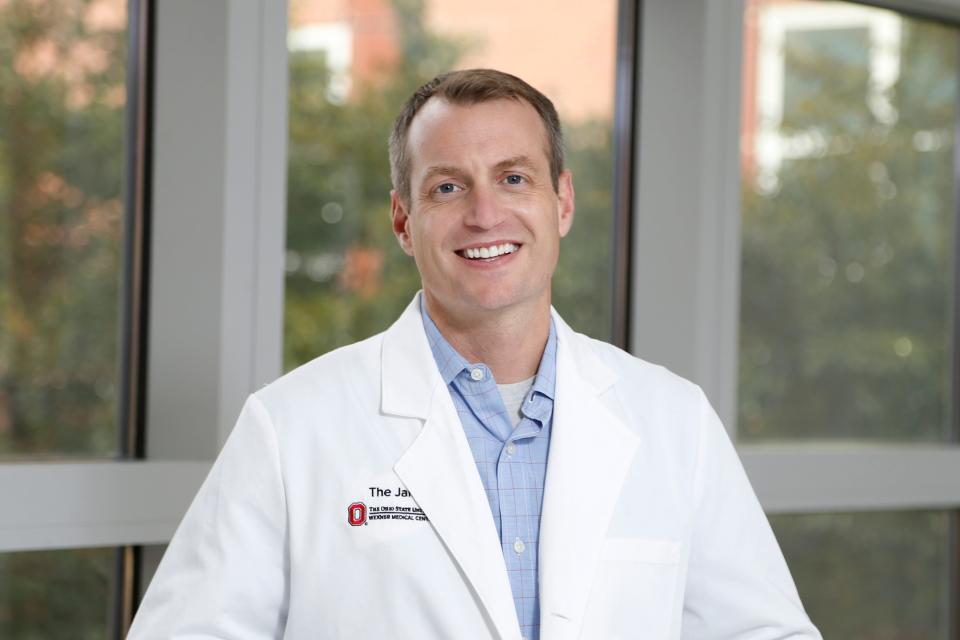
In his position as head of the recently formed Military Medicine Program, about 20% of Souza's patients are military-affiliated, meaning they are often in great physical shape and more open to taking risks, he said.
"This population of veterans is willing to be the first and break new ground," said Souza, who joined Ohio State in 2021, after six years serving in the Navy at Walter Reed National Military Medical Center in Bethesda, Maryland.
The program is important because Ohio is home to nearly 725,000 veterans — the fifth-largest population nationally — according to the Ohio Department of Veterans Services’ 2022 annual report.
And, as some military conflicts have ended and fallen out of the headlines and the nation's consciousness, Souza wants to make sure the thousands of people who made physical sacrifices for the nation aren't forgotten.
"The reason to do this is to raise awareness that there continues to be a need," he said. "It's just an unfortunate reality that we're going to be in another conflict, and so we've got to find a way to keep the lights on, to take care of the people who are continuing to suffer from our prior conflicts. But in doing so, be ready for the next ones."
Veterans Day: 7 events to check out this year throughout the Columbus area and central Ohio
'Radically different approaches'
Souza often gets patients referred to him by orthopedic surgeons, as they're the ones known for working with amputees.
But he can come in to help patients have functional, less painful experiences — with or without amputation.
“One of the radically different approaches we take here is we don’t start with trying to save a limb, or start with cutting it off,” he said, explaining something called functional reconstruction. “We basically start with, 'How are we going to optimize function and minimize pain?'”
After that, saving a limb or amputating are just a means to an end, he said.
Then, Souza’s background as a microsurgeon means he can rewire nerves that give sensation, drive function and can cause pain, making it so that they’re working the best they can.
Souza prides himself on solving problems previously thought to be impossible. And, as one of his mentors said, “You never say, 'There’s nothing you can do.'”
“There are times when the cost or risk of doing something outweighs the potential benefit,” Souza said. “But there’s always something you can do.”
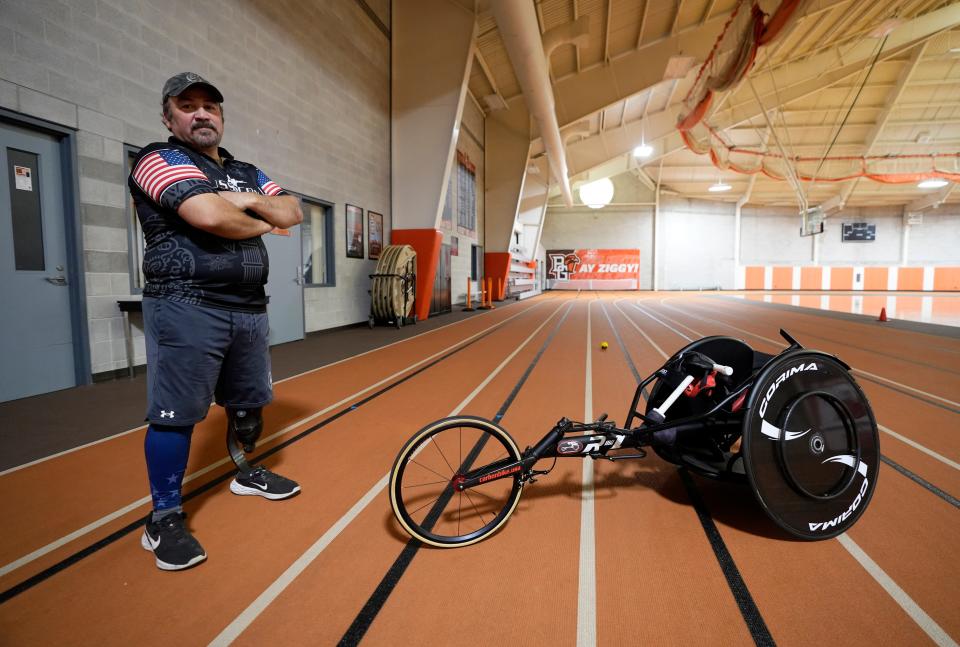
'Life-changing' care
Shane Jernigan isn't good at sitting still. Or sitting at all.
The 52-year-old former U.S. Army Ranger's body was ravaged by three injuries during his time serving his nation, and he spent some time unable to walk without assistive devices and years going in and out of surgery.
Eventually, his left leg was amputated by another doctor, but he still suffered from intense nerve pain that felt like being tased a hundred times a day, and was experiencing pain from his residual limb smashing down on his prosthetic.
Jernigan didn’t feel like he was living his life as best he could until Souza operated on him last year.
Now, the Grand Rapids resident says the past 12 months of his life have been some of the best of his 52 years.
Jernigan was referred to Souza from a military medical center in early 2022 and soon realized some of his friends had also seen the doctor, who came highly recommended.
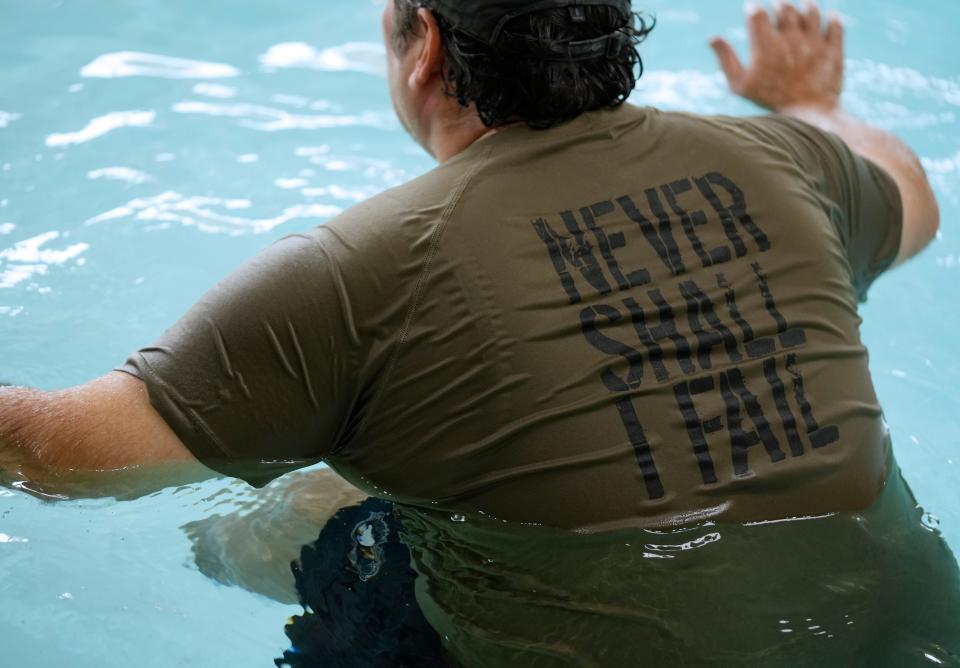
In April 2022, Souza performed a re-amputation of Jernigan’s leg, which had been causing him anguish for 19 years. Souza also fixed the nerve issues Jernigan had with the remaining limb.
During the six months after the procedure, Jernigan experienced an 80% improvement in his nerve pain in his residual limb.
Now, Jernigan is an alpine ski instructor, a para triathlete and para marathoner. He also does the warrior games, a multi-sport event hosted by the Department of Defense, and is in the best shape he’s been in since 2002.
“That was monumental for me, basically life-changing,” he said. "If you want the best, if you want to get healed up, if you want to get fixed, Jason Souza is the guy to do it."
Veterans Day: Parade canceled due to lack of attendance, support
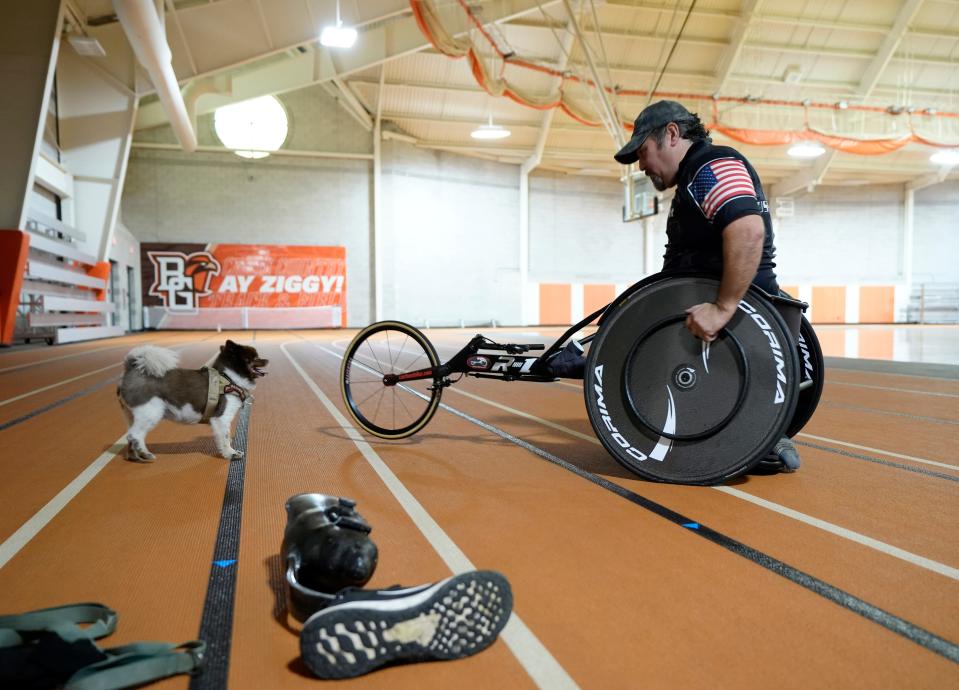
Souza's journey to Ohio State's Wexner Medical Center
The military health system in the United States has been able to keep people alive after injuries that would have likely killed them in the past, Souza said. That's a testament to its strength.
But it also creates another lifelong challenge: the surviving patients' complex reconstructive needs.
That's part of the reason Souza came to Ohio State, because Wexner Medical Center and the James Cancer Hospital solve complex problems every day and already had a system set up for how best to do so, he said.
"We've leveraged what's available at the cancer center," Souza said, referring to how it brings different doctors and other providers together to help each patient in multiple ways. "These are complex problems, and you need multiple people tackling them at the same time."
Dr. Amy Moore, professor and chair of the department of plastic and reconstructive surgery at Wexner Medical Center, recruited and hired Souza after working with him previously, and said many things set his work apart, including his ability to inspire other surgeons to collaborate on a patients' case.
In one case, Moore and Souza operated concurrently on a patient to address nerve pain. During the same visit to Ohio, the out-of-state patient met with pain specialists, foot and ankle surgeons and the PTSD suicidality team, Souza said.
That kind of collaboration is essential for improving patients' experiences, Moore said, and makes it easier for them to get the care they need conveniently and in the same place.
"They have not just a single problem, and so being able to provide the comprehensive care and then coordinate it sets us apart from what others are doing," she said.
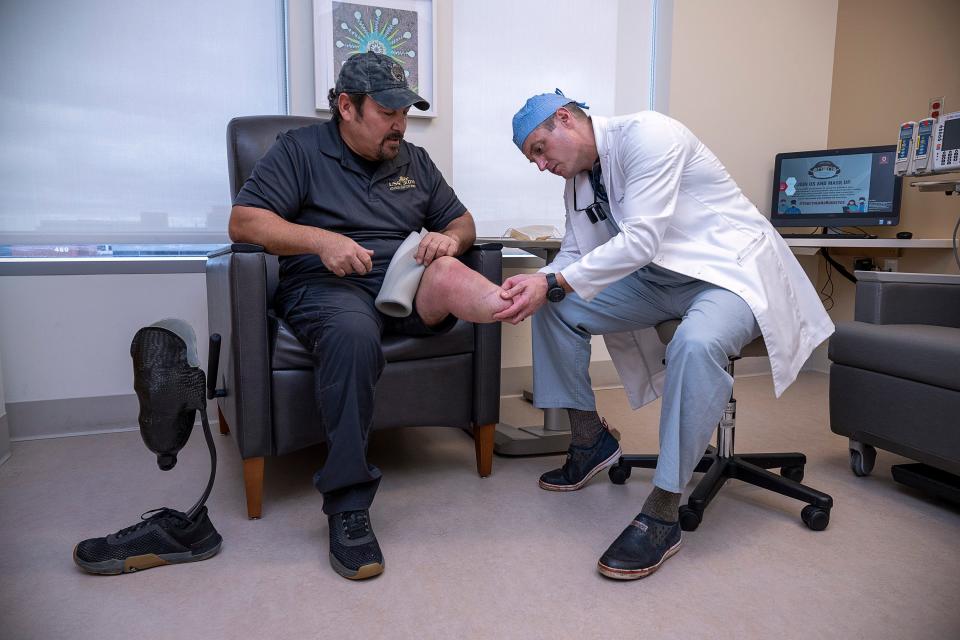
The care offered through the Military Medicine Program isn't happening elsewhere, Moore said, in part because there's a lack of resources. Souza and Ohio State help to train other military doctors in their techniques.
"We're modeling what we're doing with the veterans and the active injured war fighters so we can provide that care to others, even civilians," Moore said. "It's setting an expectation, an elevation of coordination I think all patients deserve, and we can do that here at Ohio State because of the resources we have."
When Moore recruited Souza, she said she wanted him to do the groundbreaking work he was doing at Walter Reed, but with more support.
At Ohio State, Souza has gotten a lot of "yes" in response to asking if problems can be solved, he said, including the hospital working hard to be in network for veterans' health insurance.
"I've been given a platform to continue to serve in a way that I think is oftentimes more effective and more sustainable," Souza said. "All I do all day every day is either keep limbs on, or take them off in a thoughtful way, or fix them when they've been taken off in a less thoughtful way. That's a very unusual place."
dking@dispatch.com
@DanaeKing
This article originally appeared on The Columbus Dispatch: Ohio State surgeon, a veteran himself, treats wounded warriors

